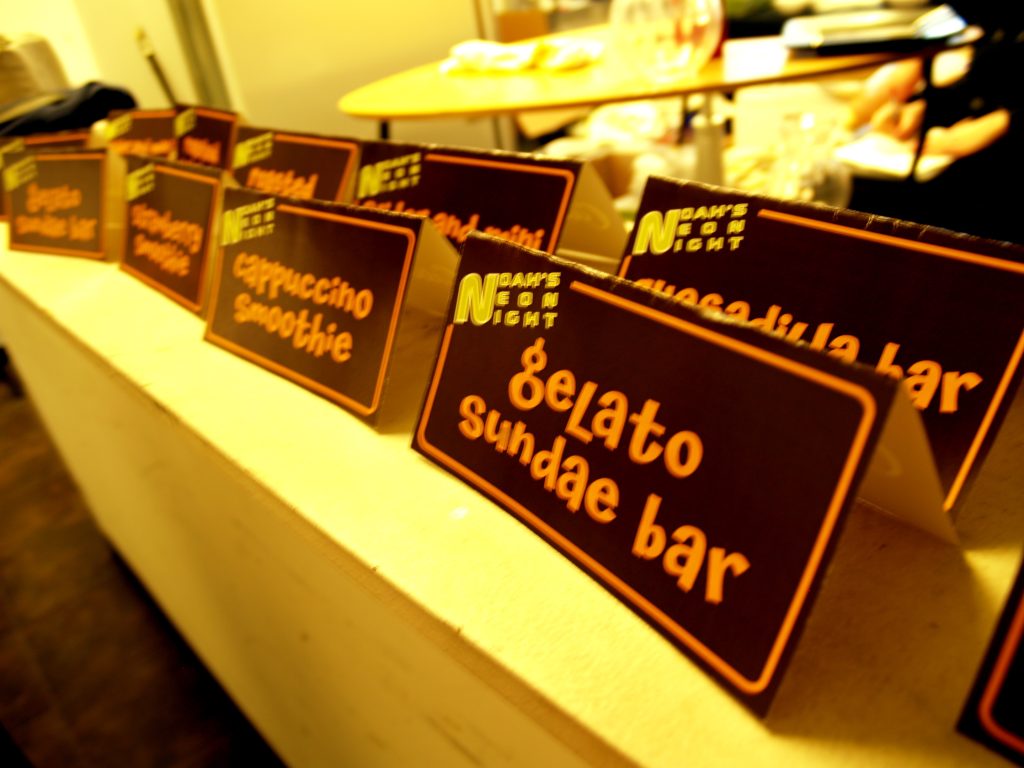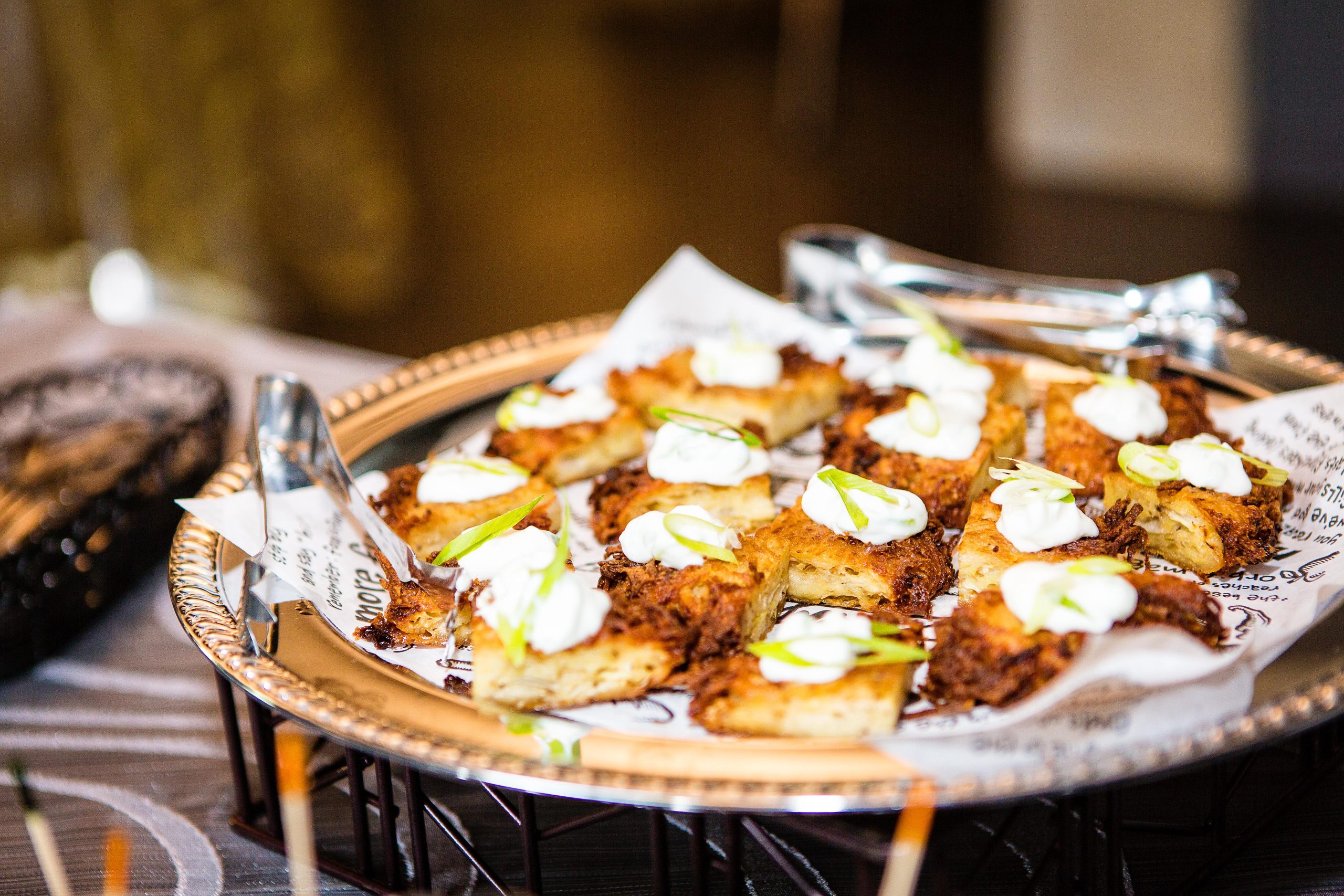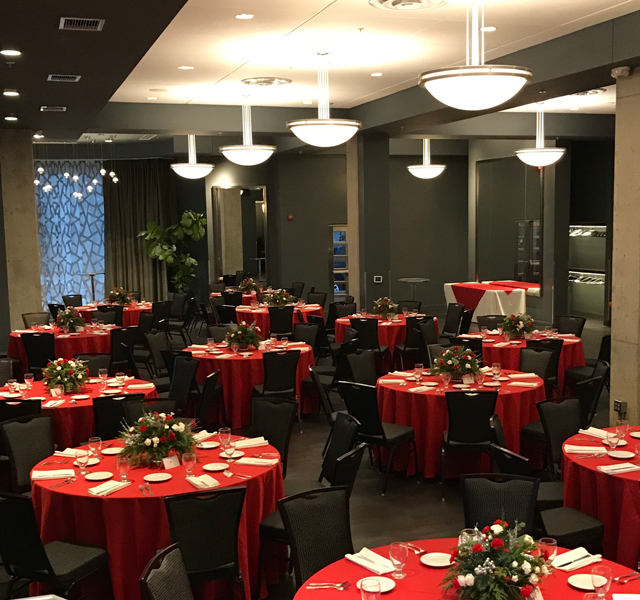 From an experienced professional—our Event Manager, Terra Brock!
From an experienced professional—our Event Manager, Terra Brock!
You’ve likely been thinking about your child’s b’nai mitzvah for years, and whether you’ve been envisioning a blowout bash or a more intimate celebration, there are a few things to consider that can help make sure your event goes smoothly.
I’ve helped plan dozens of b’nai mitzvahs over the years and wanted to share my top tips for a successful event:
1. Plan ahead
An event 13 years in the making calls for some careful preparation! You’ll begin working with your congregation 12 to 18 months out to select a date—the rigorous preparation your child will need to go through will start then as well. The b’nai mitzvah date may not be flexible once the temple has set the schedule so it’s best to secure your venue (here are our favorites!) and other essential vendors as soon as possible. The larger the expected guest count, the farther out you’ll want to lock down a space, as your venue options will be even more limited.
For this once-in-a-lifetime event, actual physical space should be considered, too. If a venue says it holds 200 guests, you may need to limit your count to 150 to allow for typical b’nai mitzvah add-ons that require a significant footprint, such as a photo booth, area for games, dance floor, and separate food stations for the kids.
2. Choose your priorities (and communicate them!)
You likely won’t be able to fit every single thing you and your child want into this one occasion. That’s okay! Taking the time to identify and document your top priorities can help you manage your (and your child’s) expectations.
Once you have determined your priorities, communicate them to all your vendors. Is it the photos that will document this milestone? Is the food particularly significant (I know who you can call in that case!)? Is there a tradition that happens at all family b’nei mitzvahs? Making sure everyone involved knows what’s most important to you and your family is essential to ensuring your vision becomes the reality.
3. Estimate a realistic budget
Of course, costs will vary significantly depending on the type of event you are planning. But if you don’t anticipate what you are comfortable spending, it can be all too easy to keep adding on as you go. Start by figuring out the fixed costs, including what you’ll need to pay your congregation, rabbi, and tutor. That will help give you an idea of what funds remain for the celebratory part of the day.
It’s absolutely possible to be cost-conscious while planning your celebration. Here are three of my favorite ways to keep your budget in check:
- Be flexible with the non-priority components. For instance, if the music isn’t the priority, opt for a playlist that can be plugged into a sound system for no additional cost, instead of paying a professional DJ. (This is an option at our downtown venue, Greyline!)
- Virtual celebrations are a great way to reduce the cost, as there is no travel involved and everyone can still participate. To make it unique and personal, you could send a food gift to each participant to enjoy during the event. We can work with our partners at Zingerman’s Mail Order to select the products and set up the shipping for you.
- Re-use decor items throughout the weekend, such as flower and balloon arrangements. For example, the decorations from the Kiddush luncheon can also be used at the Sunday brunch.
4. Ask for recommendations for b’nai mitzvah vendors
If this is your first time planning a b’nai mitzvah, your congregation, friends, and family can be your best resource for vendor recommendations. Trust your community and take advantage of their knowledge! Many have gone through this process already and will likely readily offer their do’s and don’ts on the planning process—you’ll probably hear the same names come up over and over again as you ask about DJs, caterers, event planners, and photographers.
Mitzvahs, like weddings, come with expectations and traditions unique to them and seasoned professionals know how to make things easy for their clients and what questions to ask to ensure a successful event.
5. Involve your child in the process
Work with your child to decide on a community service or b’nai mitzvah project idea. Many families find that the meaningfulness of the event is enhanced when a tzedakah project is established.
For the event itself, having your child help select a theme, color scheme, and menu can give them agency in the planning process. I encourage parents to bring their child (and their siblings if applicable) to the menu tasting to help decide what food will be served at the celebration—it’s a great way to ensure they feel like their opinions on the details matter.
On the flip side, Avoid getting too many people involved in the planning. Let your guests be your guests on this special day and leave the work to us!
6. Keep accessibility in mind

Accessibility is an important aspect to consider to make sure all of your guests can fully participate and enjoy your event. Eliminating obstacles for your guests is a great way to be a gracious host!
This includes things like a physically accessible venue with inclusive seating. Not all venues are easy for guests with mobility issues. A space like Zingerman’s Greyline, with easy drop-off, no stairs or elevators, and flexible room layouts, can make the day more enjoyable for everyone. Greyline also happens to be right next door to a hotel! Your guests would no doubt love to find hospitality baskets waiting in their rooms for them with a schedule of events, detailed directions, and snacks to sustain them between events (we’d be happy to help with that part!). And to really make them feel like VIPs, coordinate their transportation to and from airports and events.
Accessibility also includes accommodating dietary restrictions. When your b’nai mitzvah invitations go out, it’s helpful to ask for this information with RSVPs so you can be prepared. A full-service caterer can tailor the menu to the needs of the group. For instance, Zingerman’s Catering can’t offer strict kosher, but we have many options that meet your needs, such as a dairy-only platter to keep meat and cheese separate.
At the end of the day, my biggest tip is to stay calm and enjoy the process! Plan for things to not go to plan—pack a just-in-case bag with a mini sewing kit, hairbrush, medications, etc. Also, remembering that this day is about your child and that their emotions are likely to be running pretty high (after all, they are probably reading Hebrew for the first time in front of a live audience!) can help put things in perspective.



